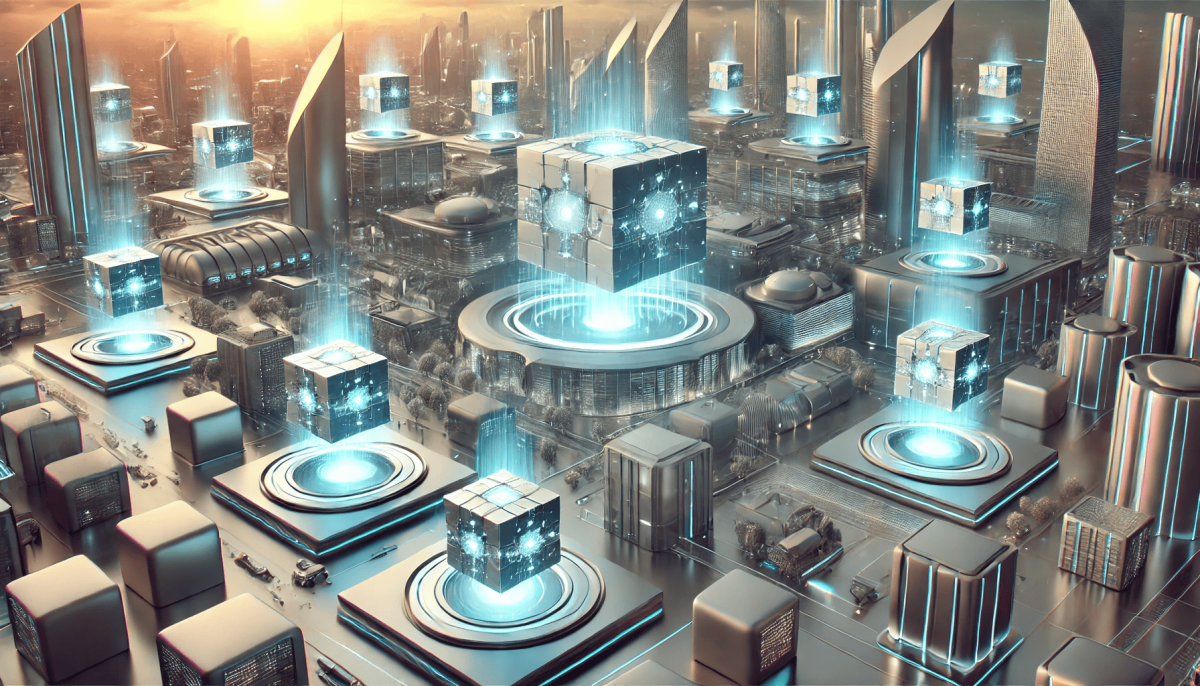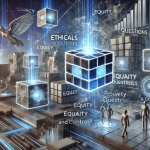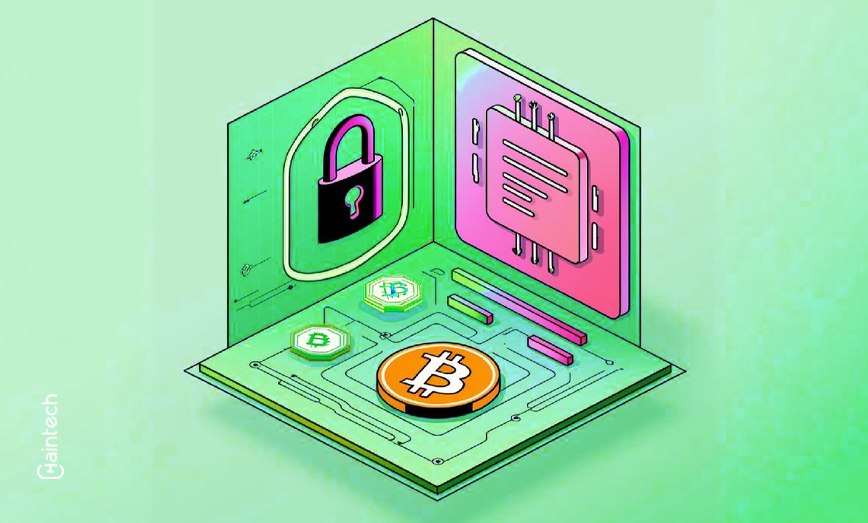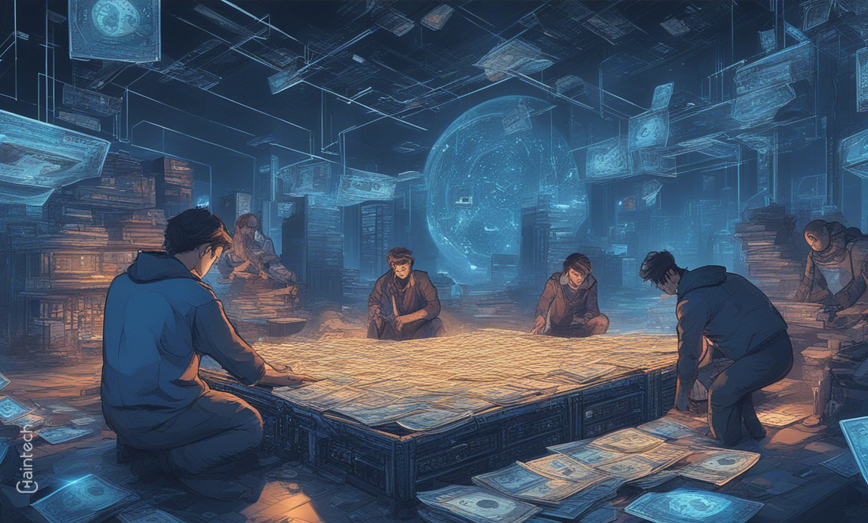DAO: The Future of Governance and Decentralized Leadership

The radical transformation that Decentralized Autonomous Organizations (DAO) create is a direct threat to the conventional management structures. Tokenization in the financial sector and beyond exemplifies how blockchain-based systems remove the need for a central management system.
Discriminated authority stays as an imprint of history as these organizations operate with transparency and efficiency. Instead, it’s the community that determines the most important matters.
The way towards incorporating a decentralized system is based first and foremost on increasing trust, accountability, and transparency. DAOs offer both. They let members vote on decisions and keep everyone accountable through smart contracts.
Think of it like this: A DAO could run a nonprofit without a single person in charge. Funds are distributed automatically, and every action is visible to members. This is the future of governance.
DAOs are shaping the future of governance.
- What are DAOs, and how do they function?
- Benefits and drawbacks of decentralized governance.
- How can you get involved in DAOs today?
What are DAOs? Understanding decentralized governance
DAOs are organizations run by communities instead of leaders. They operate using smart contracts, which are programs on a blockchain. These contracts automate tasks like approving a budget or managing funds.
Here’s how they work:
- Blockchain technology: This keeps all actions secure and visible to everyone.
- Community-driven voting: Members vote using tokens.
- No middleman: Everything runs through smart contracts, removing human interference.
There are benefits and drawbacks to decentralized governance. Its community decides on rules like interest rates and fees. This approach ensures no single person has control, making the system fairer. It sets a new outlook to envision using DAOs in lending, charitable organizations, creative communities, or even in advancing tokenization in the financial sector.
Their inherent efficiency and transparency make them perfect governance structures for managing small or large-scale projects.
Interesting Fact
There’s a DAO called “FlamingoDAO” that spends millions buying digital flamingos and quirky NFTs. It’s proof that decentralized communities make serious decisions and have a hilarious side when it comes to collecting digital art!
Why DAOs are the future of governance
Unfortunately, after all, DAOs apply numerous disadvantages to certain governance structures. So this is why they are gaining notoriety among scholars and media:
Trust through transparency
Every action in a DAO is recorded on the blockchain. Members can check votes, transactions, and decisions anytime. This openness builds trust and reduces disputes.
Cost savings
DAOs eliminate middlemen, such as managers and lawyers. Smart contracts handle most tasks automatically, lowering costs and speeding up processes.
Global Inclusion
DAOs don’t care about borders. Anyone with internet access and a token can join. What abducts these disadvantages, however, is the sheer opportunity for participants all over the world. DAOs Make Governance Fairer and More Accessible DAOs and their purposes.
DAOs and their role in empowering communities
The new way of cooperation. Communities are not required to follow leaders, as DAOs do not imply traditional leadership. Instead, they use smart contracts and collective voting to make decisions.
Here’s how DAOs empower communities:
- Global participation: Anyone with an internet connection can join and contribute.
- Democratic decision-making: Every member gets a vote, ensuring fair representation.
- Transparent funding: DAOs manage funds openly, building trust among members.
- Participating in the DAO: Token holders who have invested in the DAO typically hold strong incentives to promote the DAO as its success will result in a profit for them, thus motivating proactivity.
For instance, Gitcoin’s DAO helps developers worldwide by financing open-source initiatives. This transparency and inclusivity encourage collaboration, which makes communities easier to flourish.
DAOs show that with a single purpose, people from all over the world can come together and make great things happen, with each being able to play a real part in the larger plan.
Real-world examples of DAOs
DAOs are already making changes in various fields. Let’s see some of them:
| DAO Name | Purpose | Impact |
| MakerDAO | Manages stablecoin DAI | A transparent and stable financial system |
| Uniswap | Crypto trading platform | Community-driven innovation |
| Gitcoin | Funds open-source projects | Supports global developers |
| Aragon | Helps create new DAOs | Simplifies decentralized governance |
| Friends With Benefits | Creative collaborations | Empowers artists and creators globally |
These DAOs are proving that decentralized governance works across finance, tech, and creative spaces.
Challenges DAOs must overcome
Even though DAOs sound amazing, they face real challenges.
Legal uncertainty
Most countries don’t have clear laws for DAOs. Without legal status, some DAOs struggle to operate or raise funds. Governments are starting to notice, but the rules aren’t ready yet.
Security risks
DAOs rely on smart contracts. If there’s a bug in the code, it is possible to manipulate it. One of the more notorious DAO thefts resulted in the loss of large sums of money compounding once in the hack of a Ngo DAO. Developers now focus on better audits to avoid such issues.
Scaling problems
As DAOs grow, they need faster and cheaper blockchains. Right now, some blockchains get clogged when too many people use them. Solutions like Ethereum 2.0 are trying to fix this.
Despite these hurdles, DAOs are evolving. Research and innovation are paving the way for their success.
How DAOs are changing the nonprofit sector for good
The adoption of DAOs is greatly enhancing growth in the realm of charity. Nonprofit organizations in the traditional sense usually experience a good deal of waste and low trust. These problems are being addressed by DAOs through increased transparency, tokenization in the financial sector, and automation capabilities enabled through the blockchain.
Here’s why DAOs work well for nonprofits:
- Transparency: Every donation and expense is recorded on the blockchain, ensuring trust.
- Cost savings: Automation reduces administrative costs, letting more funds go toward causes.
- Global reach: DAOs enable participation from supporters worldwide.
- The donor has direct effects: They steer the spending of funds and have actual ownership over how their money is used.
As an example, Giveth, a DAO for charity, links funds to specific projects. It provides an opportunity for the members to track their inputs and come up with mechanisms of reporting. DAOs also have self-correcting characteristics that counteract these inefficiencies. For example, they create equal opportunities for all; thus, resources are directed toward maximizing outputs and growing the impact. By incorporating innovations like tokenization in the financial sector, DAOs further enhance transparency and efficiency, ensuring that donations and resources truly make a difference. It’s a world where eliminating waste and ensuring that donations mean something is the basis for the foundation.
Did you know?
DAOs don’t just manage money—they’ve even purchased physical assets like rare art and real estate! One DAO, ConstitutionDAO, famously raised millions in an attempt to buy a rare copy of the U.S. Constitution, showing how decentralized communities can come together for extraordinary goals.
What’s next for DAOs? Endless opportunities
The future of DAOs looks bright. They could change how businesses, governments, and communities operate.
Here are some possibilities:
- Smarter decisions with AI: Imagine combining DAOs with artificial intelligence for better decision-making.
- IoT integration: DAOs could manage smart cities by automating traffic lights and public utilities.
- Web3 ecosystems: They could power decentralized apps, social media, and even new financial systems.
DAOs are not just about governance. They’re a tool for building a better, more transparent world.
How you can join the DAO movement
Do you want to take part in this change? Here’s what you can do:
- You can support an existing DAO: They are looking for other members, so find one in an area that interests you. Platforms like Aragon and DAOstack list active DAOs.
- Offer your expertise: Some DAOs require technical knowledge, marketing skills, and community building.
- Start your own DAO: With something like Aragon, there’s nothing to it; get on and manage your own DAOs.
It is easy to get involved; begin small and see how being part of a decentralized ecosystem is very fulfilling.
The world is changing, and DAOs are spearheading new governance models.
The world is moving into a time when everything is done in fairness and honesty.DAOs are leading the way. They’re cutting out middlemen, lowering costs, and giving everyone a voice.
The best part? One doesn’t have to be a technical guru to participate in the DAO revolution. If you would like to use your expertise in DPS, or if you would rather start your own DAO, there is a place for you in this great movement today.
So, why don’t you? Start entering the universe of DAOs and be part of the change that is going to lead to the future of governance.
FAQs
1. What does a DAO do?
A DAO manages decisions and funds using blockchain and smart contracts.
2. How can I join a DAO?
You can join through platforms like Aragon or DAOstack.
3. Are DAOs legal?
Some countries recognize DAOs, but regulations vary widely.
4. What industries use DAOs?
Industries like finance, tech, and philanthropy are already using DAOs.
5. Why are DAOs important?
They promote transparency, reduce costs, and make governance accessible to everyone.









